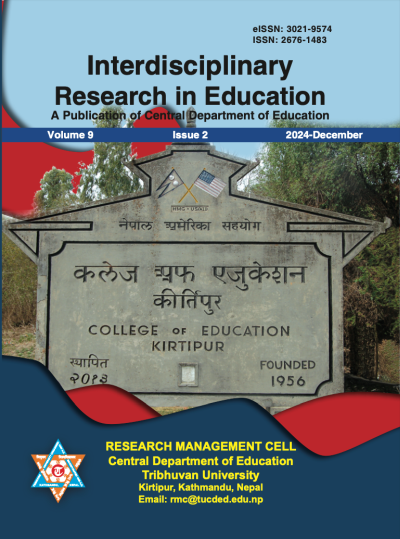Interdisciplinary in Education Research—Bridging Epistemologies and Practices
DOI:
https://doi.org/10.3126/ire.v9i2.75963Abstract
This issue of Interdisciplinary Research in Education presents a diverse range of studies exploring critical intersections between education, governance, technology, health, gender, and socio-economic development. Key themes include education quality, ICT integration, assessment reforms, and governance challenges. Studies highlight systemic improvements in Nepalese secondary education, digital literacy gaps in higher education, and evolving language assessment practices. Research on gender representation in textbooks and sexual harassment in universities underscores the need for equitable learning environments. Health and well-being are examined through physical activity's impact on academic achievement and occupational health promotion for teachers. Innovative pedagogical strategies, such as gardening-based learning and multilayer concept mapping, are also explored. Additionally, studies on migration, children’s literature, and linguistic analysis further enrich the discourse. This issue underscores the value of interdisciplinary inquiry in addressing educational challenges, offering insights for educators, policymakers, and researchers navigating an evolving educational landscape.




